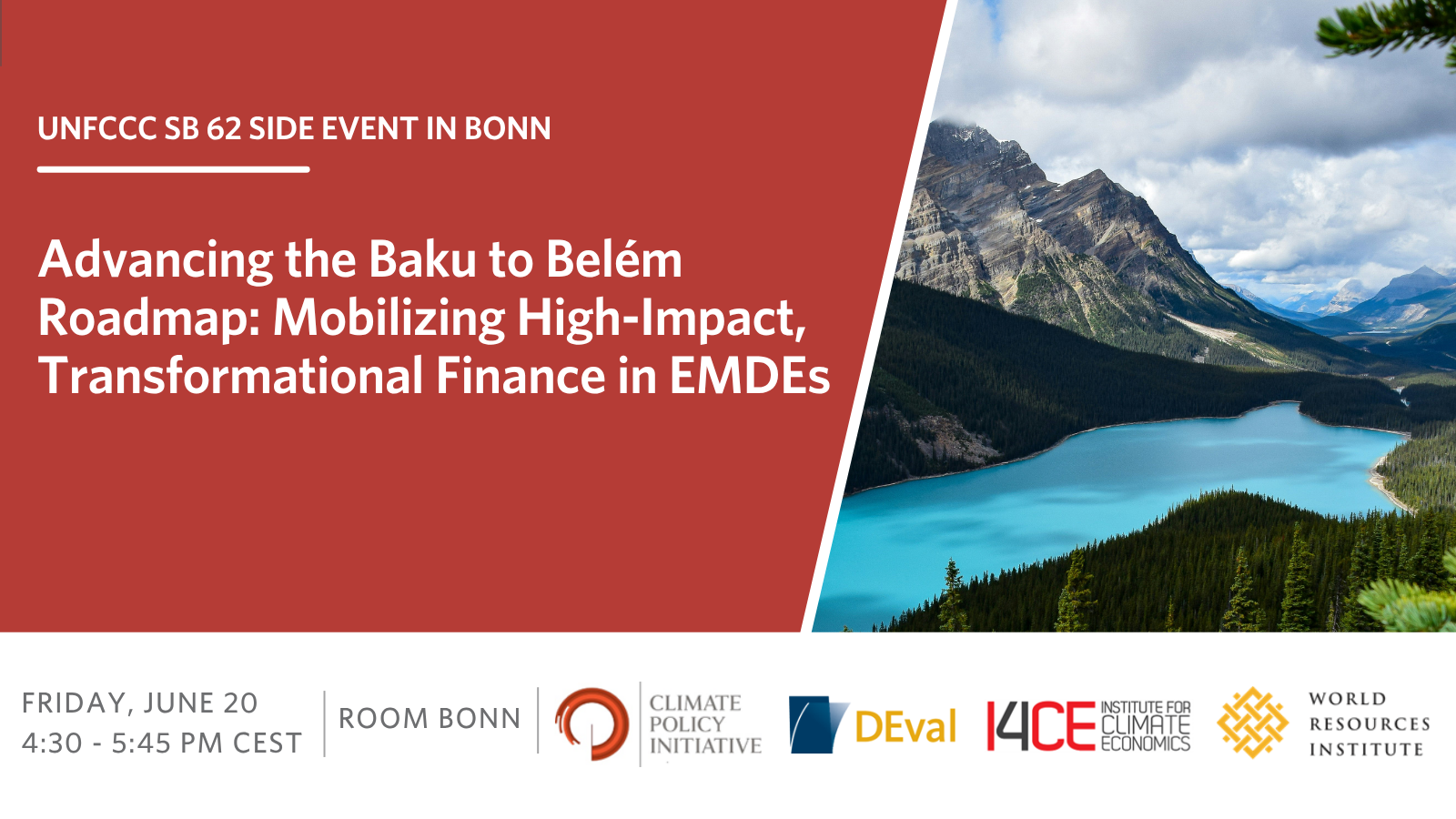Advancing the Baku to Belém Roadmap: Mobilizing High-Impact, Transformational Finance in EMDEs
Conferences - By : Sarah BENDAHOUDate: June 20, 2025
Time: 4:30-5:45 PM CEST
Organised by I4CE, DEval, Climate Policy Initiative (CPI), World Resources Institute (WRI)
Event organised on the sidelines of the June Climate Meetings in Bonn (SB 62)
The event will explore climate finance to EMDEs and discuss ways to reach the $300bn and $1.3tn targets via public and private finance for adaptation and mitigation using emerging evaluation methods and more efficient use of finance for impact, alignment, equitable distribution, and transparency.
As public budgets face growing pressure and shifting priorities, there is a pressing need for stronger evidence on which climate finance approaches are most effective, for whom, and what can be scaled or replicated. Understanding the quality of climate finance is crucial to making the most of limited resources and ensure the delivery of tangible, on-the-ground results.
Agenda
4:30pm – Welcome and overview of the event, Baysa Naran, Senior Manager, Climate Policy Initiative (CPI)
4:40pm – Understanding the concept of “quality” of climate finance and defining “transformational finance”
Moderator: Baysa Naran, Senior Manager, CPI
Keynote presentations
-
Understanding and defining the quality of climate finance, Costanza Strinati, Manager, CPI
-
Defining transformational finance for climate, Sarah Bendahou, Researcher, I4CE
Panel discussion followed by Q&A
- Ana Toni, National Secretary for Climate Change, Brazil Ministry of the Environment and Climate Change
- Hendrikje Reich, Head the International Climate Finance Division, German Federal Foreign Office
- Alexis Bonnel, Strategy and Foresight, Agence française de développement (AFD)
5:10pm – Ensuring high impact of climate finance
Moderator: Baysa Naran, Senior Manager, CPI
Keynote presentations:
-
Transparency, distribution, and impact of mitigation ODA, Thomas Wencker, Senior Evaluator, DEval
-
High-impact adaptation finance, Carter Brandon, Senior Fellow, WRI
Panel discussion followed by Q&A
- Ana Toni, National Secretary for Climate Change, Brazil Ministry of the Environment and Climate Change
- Hendrikje Reich, Head the International Climate Finance Division, German Federal Foreign Office
- Alexis Bonnel, Strategy and Foresight, Agence française de développement (AFD)

